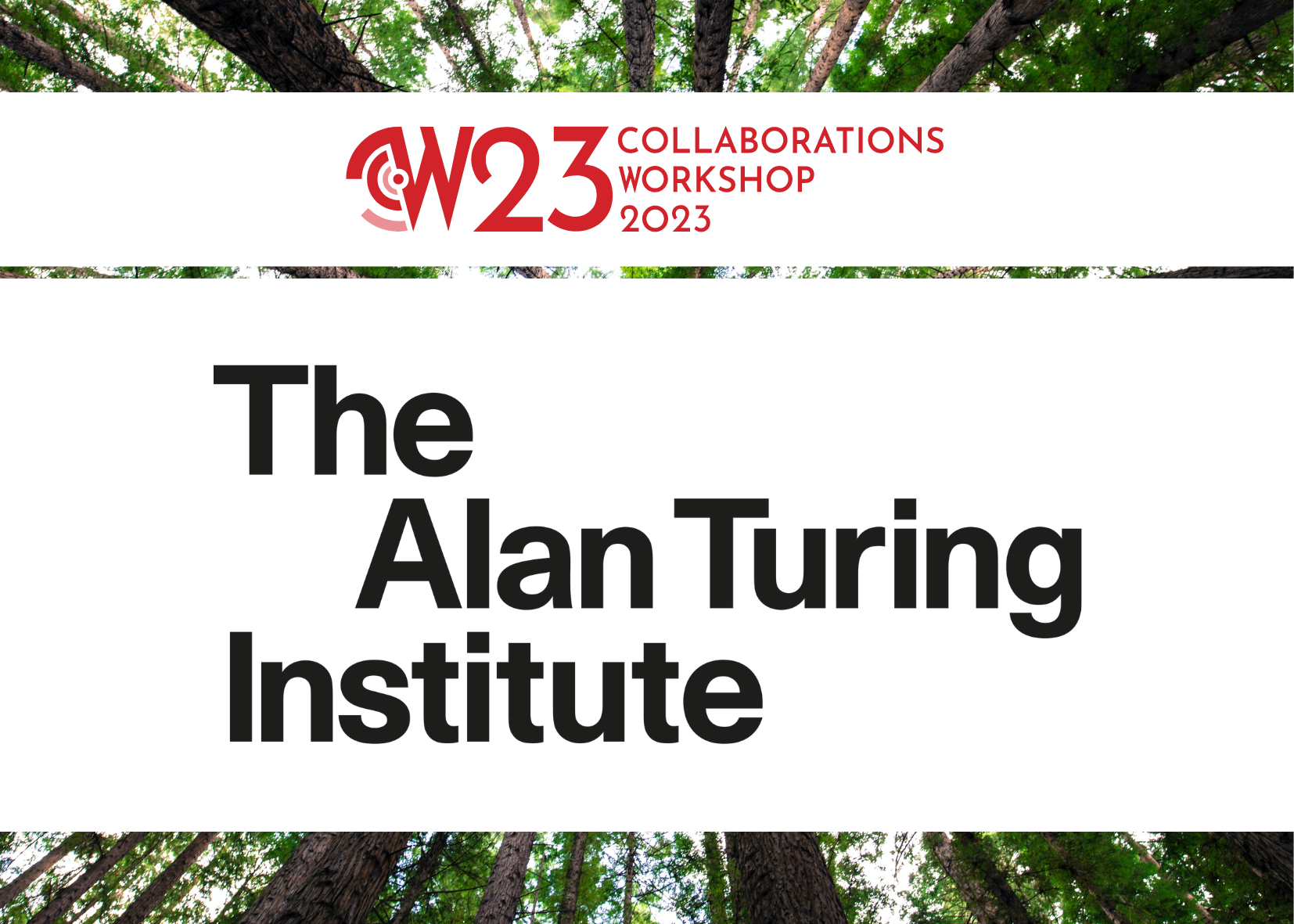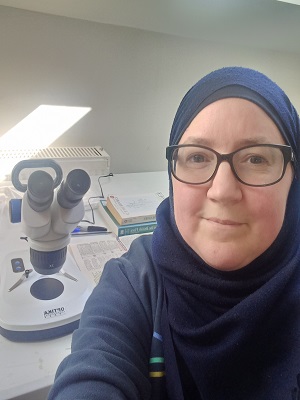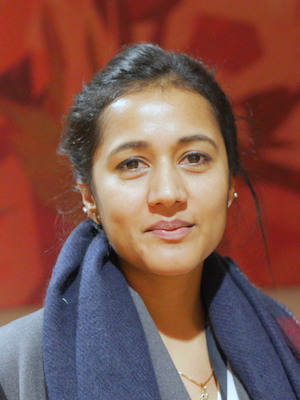The Alan Turing Institute to sponsor Collaborations Workshop 2023
Posted on 24 April 2023
The Alan Turing Institute to sponsor Collaborations Workshop 2023
Posted by d.barclay on 24 April 2023 - 9:00am
 By Emma Karoune, Malvika Sharan, Camila Rangel Smith, Anne Steele, and Pamela Wochner, from The Alan Turing Institute.
By Emma Karoune, Malvika Sharan, Camila Rangel Smith, Anne Steele, and Pamela Wochner, from The Alan Turing Institute.
We are excited to announce that The Alan Turing Institute are Platinum Sponsors of Collaborations Workshop 2023 (CW23), taking place as a hybrid event from Tuesday 2 May to Thursday 4 May.
As the UK’s national institute for data science and artificial intelligence, the Alan Turing Institute’s mission is to make great leaps in data science and artificial intelligence research in order to change the world for the better.
The Institute has three ambitious goals, which are to advance world-class research, build skills for the future, and drive an informed public conversation. It collaborates with universities, businesses and public and third sector organisations to apply this research to real-world problems, with lasting effects on science, the economy, and the world we live in.
Tools, Practices and Systems & Research Engineering Group
Tools, practices and systems (TPS) is a cross-cutting programme that builds open infrastructure to empower a decentralised network of people who connect data with domain experts to create a democratic, accessible and trustworthy research ecosystem. TPS aims to embed open, ethical, collaborative and reproducible practices throughout the research and innovation process, both at the Turing and beyond.
The Research Engineering Group (REG) contributes skills in research software engineering and data science in support of other programmes, as well as to its own projects. This model of working ensures that the tools they develop are useful and applicable to a wider range of areas. The team supports the professional delivery of impactful research across the Turing's programmes, as well as its own research interests. TPS researchers including Research Applications and Research Community Managers and Research Engineering Group work across research groups and programmes at the Turing to bring specialist knowledge and skills into interdisciplinary research projects. We refer to these as research infrastructure roles - each providing skills, expertise and resources in particular aspects of data science to ensure that the collaborative research we do at the institute is bigger than the sum of its parts. These diversified research roles enable open, inclusive and sustainable research approaches to be embedded throughout the projects’ lifecycle creating high quality reproducible research and maximising impact. These research infrastructure roles at Turing and beyond have been documented in The Turing Way.
Research Community Management
An example is the Research Community Management. The Research Community Managers at the institute engage, upskill and facilitate collaborations among all researchers, collaborators and contributors through scientific community building approaches. They facilitate the integration of reproducible, open source/science and ethical processes in technical as well as the social infrastructure of our research projects. Serving as bidirectional conduits of knowledge, they make ‘implicit knowledge’ explicit by communicating, co-creating resources and actively advocating for as well as leading on aspects of open research practices in data science projects.
Research Engineering
Another example of research infrastructure roles is the Research Software Engineer, Research Data Scientist and Research Computing Engineer roles (Research Software Engineer: Overview — The Turing Way (the-turing-way.netlify.app). These are the base of the Institute’s Research Engineering Group, a 45 people strong team that works towards maximising impact in data science research projects by realising cutting edge research as professionally usable software tools, so they can be used to address real-world challenges.
In contrast to traditional research careers, members of the Research Engineering Group are committed expert collaborators, they provide expertise in research software engineering and data science to support various programs and projects, both internally and externally. The team focuses on the development of open reproducible practices and tools, providing advanced computing platforms, as well as teaching and training. They collaborate with academics, industry partners and the government to support the professional delivery of impactful research with the aim of connecting academic research with real-world problems.
Other teams representing research infrastructure roles at the institute include Research Application Managers, Data Wranglers, Ethics Managers and Training Officers (Skills Team). Diversifying roles and establishing dedicated research teams with a range of research infrastructure expertise at the institute has allowed horizontal transfer of specialised knowledge and skills.
In this era of ever-evolving needs and changing landscape of data science, research infrastructure experts are not just useful additions but should be considered essential assets for research. These experts build a shared understanding across multiple stakeholders, facilitating collaboration, defining challenges, identifying resources, translating knowledge, and co-creating new or adopting existing solutions from different areas of research. Recognition of research infrastructure roles as compelling career pathways in data science will ensure the quality, integrity and reusability of research outcomes, building a more open, equitable and sustainable future for research.
Find out more about Research Infrastructure roles in The Turing Way - Research Infrastructure Roles: Introduction — The Turing Way (the-turing-way.netlify.app)
About Collaborations Workshop 2023
We thank The Alan Turing Institute for their kind and generous support as Platinum Sponsors of CW23. To find out more information about the event, please visit the CW23 website.


